Opinion | What I Wish the U.S. Had Done About Putin Years Ago – And What Biden Should Do Now
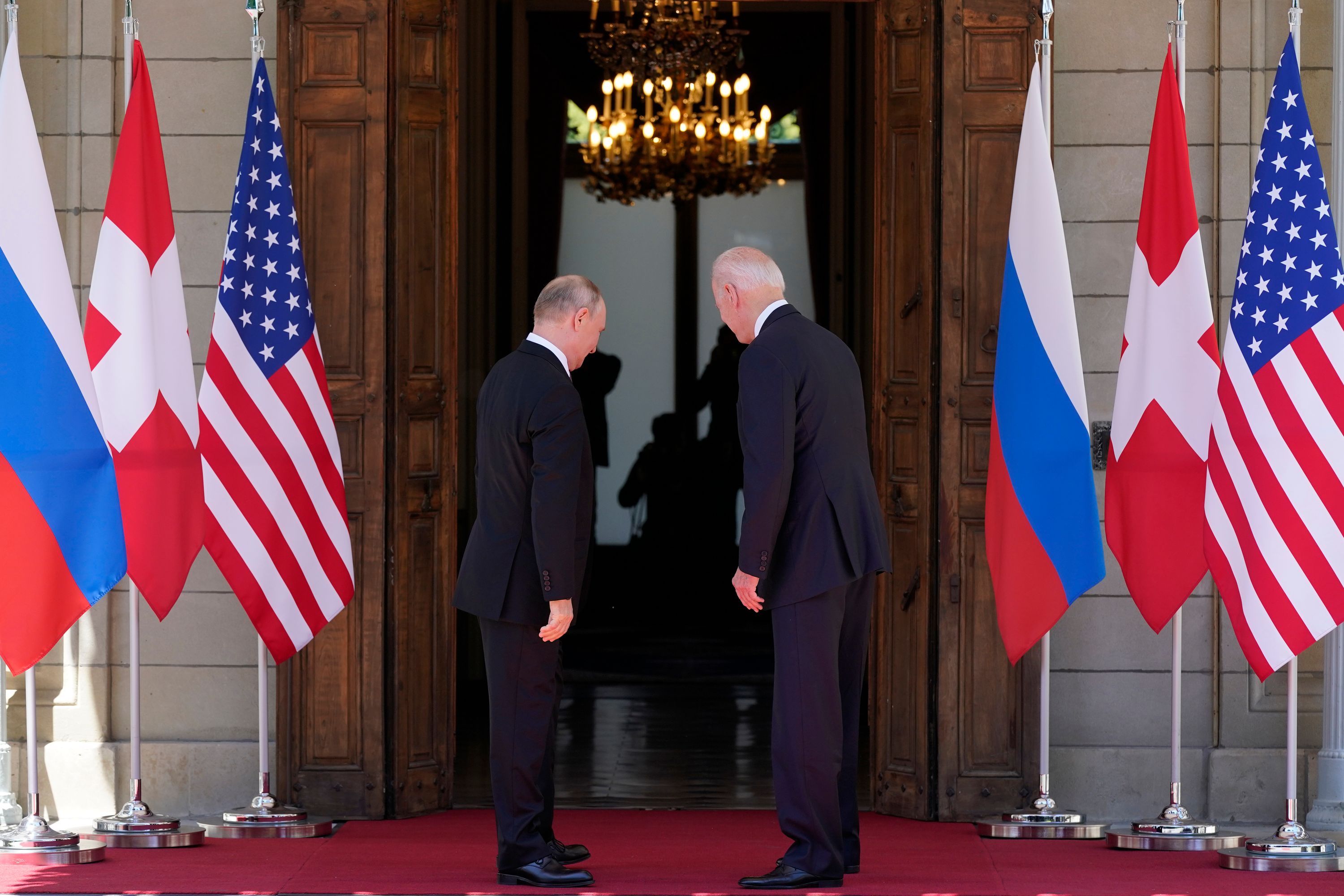
Fifteen years ago, I was working in the State Department when a prominent Russian journalist and a high-profile critic of Russian President Vladimir Putin were brutally murdered within a few weeks of each other, almost certainly by elements of the Russian security services. Our failure (my own included) to respond meaningfully to those murders is one of my biggest regrets.
Few realized in 2006 that the deaths of Anna Politkovskaya and Alexander Litvinenko were a canary in the coalmine for how Putin would deal with critics and perceived enemies. Of course, the former KGB officer had overseen a brutal invasion of Chechnya that claimed thousands of lives. But the murder of Litvinenko in particular, which took place in the U.K., showed Putin’s readiness to wipe out perceived threats even if located in other countries.
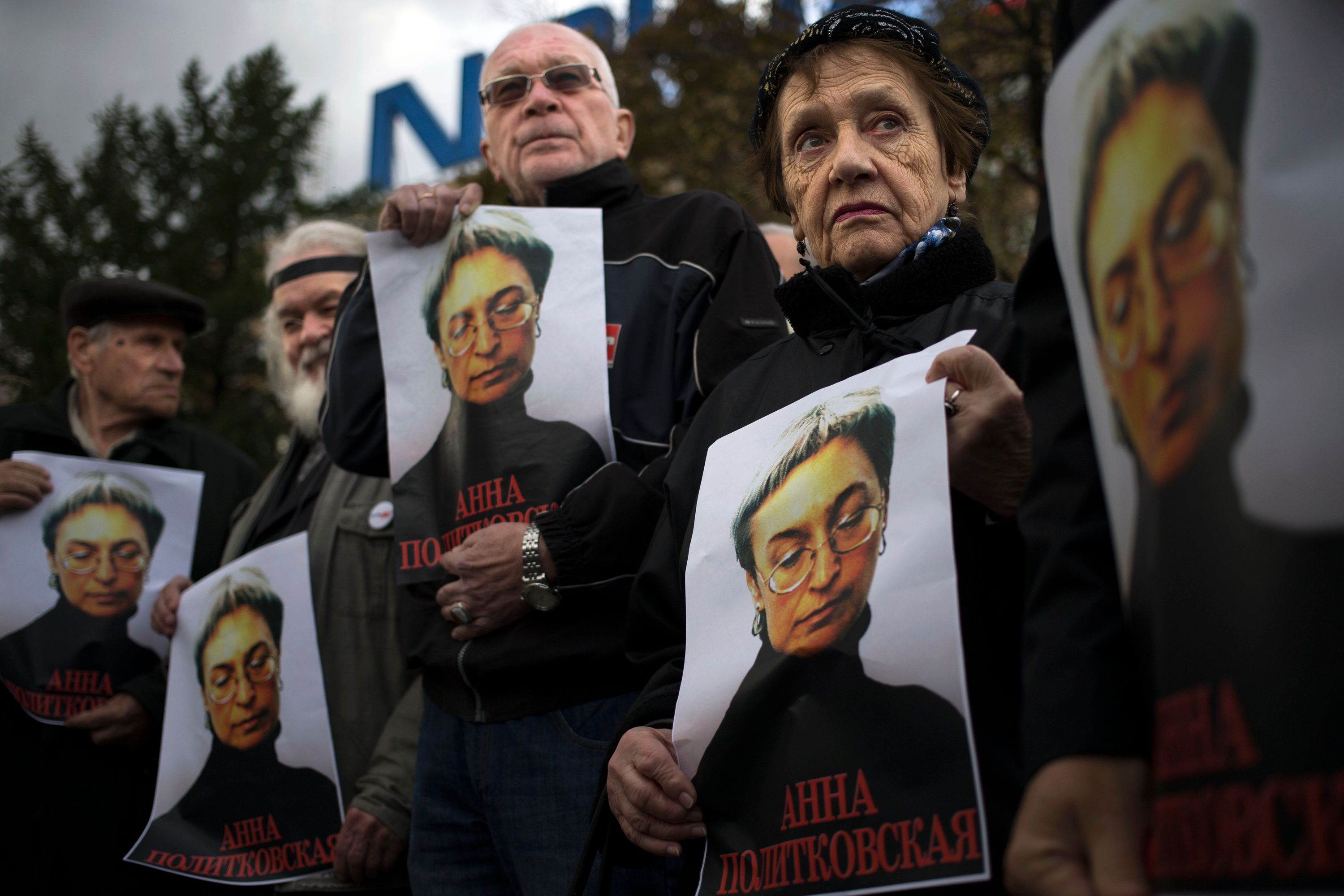
The situation has deteriorated since, with Putin overseeing the worst crackdown on Russia’s opposition, media and civil society since the Soviet era, including the assassination of opposition leader Boris Nemtsov in 2015 and the poisoning of Alexei Navalny in 2020. Despite a stagnant economy and the coronavirus pandemic, Putin maintains a firm grip on power, at least for now, by eliminating domestic opposition, removing term limits through rigged constitutional changes and propping up like-minded leaders in the region (Belarus’ dictator, Alexander Lukashenko, for example) and beyond (Syria, Cuba, Venezuela).
The United States, with rare exceptions, has done little about this, giving Putin the impression that he can get away with hunting down enemies inside Russia and overseas while seemingly turning a blind eye to cyberattacks conducted by Russian-based hackers. In June and again in July, President Joe Biden warned Putin of consequences for ransomware attacks emanating from Russia. “We expect him to act,” Biden told reporters. Asked directly whether Russia would face consequences, Biden answered “yes.”
It is possible the administration has retaliated covertly. But the lack of public response — which seems to encourage Putin to do nothing to stop the attacks — continues the unfortunate mistakes of the past three administrations.
Indeed, the U.S.-Russian relationship over the past 15 years is littered with examples of American failure to hold Putin accountable and impose penalties that would induce him to alter his behavior. This is in part because U.S. policymakers have consistently failed to see Putin as a true threat who will only stop when faced with serious pushback. It also reflects a desire across administrations to minimize the risk of escalation with Russia. Finally, America’s cautious posture is rooted in concern about jeopardizing prospects for cooperation in other areas, like arms control, Afghanistan, Iran and climate change.
But the reality is that we are likely to get very little cooperation from the Putin regime. Instead, “playing nice” with Putin plays right into his playbook. While Biden may seek “predictability and stability” in the U.S.-Russia relationship, Putin’s end goal is precisely to stir up as much instability as possible. He has used hybrid warfare and outright invasion to destabilize neighbors like Ukraine and Georgia to try to make them unattractive candidates for membership in NATO and/or the European Union. He does not want to see thriving democracies along Russia’s borders that could pose threatening alternatives to the authoritarian model he has constructed. Every time the West responds weakly or not at all, he pushes even further with his destabilization efforts. On Afghanistan — the Biden administration’s most urgent foreign policy crisis at the moment and an area where the U.S. might be tempted to seek Russian cooperation — Putin reportedly brushed off a request from Biden during the leaders’ June summit to allow U.S. bases in Central Asia.
Today, I’d advise Biden to avoid the mistakes of his predecessors and to instead take the tougher approach that seemed to be his instinct early in his presidency. Hoping Putin will just go away so the administration can focus on China or, worse, that he can be channeled in a more positive direction ignores the lessons of the past 15 years. This will only lead to more regrets down the road.
In the fall of 2006, I was the deputy assistant secretary of state for Europe and Eurasia with responsibility for Russia, Ukraine, Belarus and Moldova. Putin was halfway through his second term. Initially, relations with the United States got off to a decent start — Putin was the first foreign leader to contact President George W. Bush after the 9/11 attacks — and the two men developed a rapport.
But with Russia rebounding from the chaos of the 1990s, thanks to the spike in oil prices, Putin accelerated his campaign of marginalizing or even eliminating perceived threats, such as former oligarch Mikhail Khodorkovsky, arrested in 2003.
On Oct. 7, 2006 (which happens to be Putin’s birthday), journalist Anna Politkovskaya, who exposed corruption and wrongdoing by the Putin regime, was gunned down in her Moscow apartment building. While several men were arrested and tried for her murder, nobody has been arrested for having ordered it. Since then, more than 20 Russian journalists have been killed.
Less than a month later, Russian agents traveled to London and poisoned the tea of Alexander Litvinenko, a former Russian spy who had turned against Putin. He died an excruciatingly painful death three weeks later. A British public inquiry concluded that Andrey Lugovoy and Dmitry Kovtun had killed Litvinenko with polonium, a dangerous and banned radioactive substance — and that Putin “probably” approved of the murder. Instead of being held accountable, Lugovoy became a member of the Russian parliament.
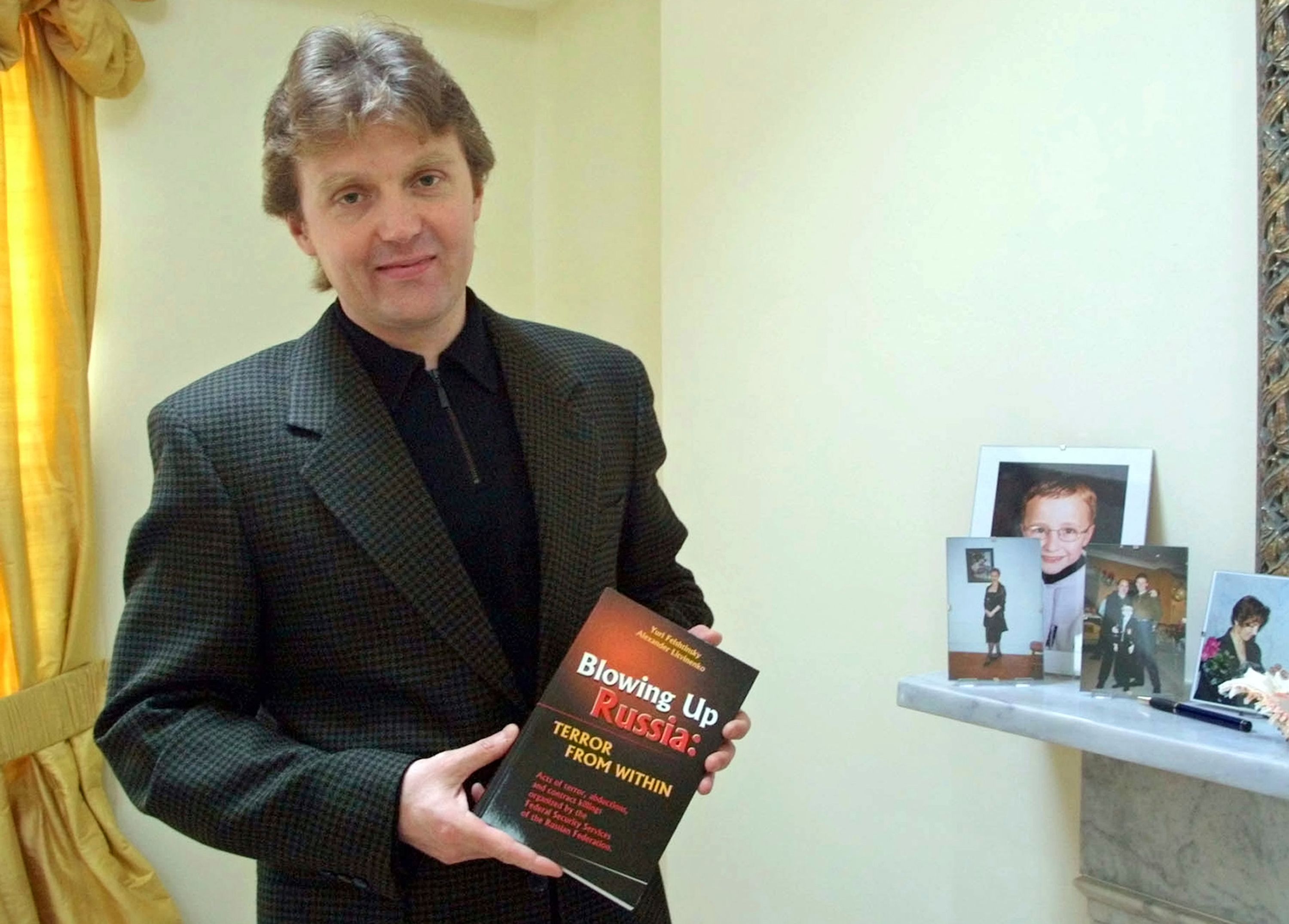
In neither case did the U.K., EU or United States impose any sanctions. Despite growing awareness within the Bush administration that Putin was establishing a kleptocratic authoritarian state that could pose serious challenges, we continued to try to find areas of cooperation. Entering its final two years in office, the White House hoped to keep relations with Moscow cordial and even find common ground on contentious issues. We thought we could minimize the growing differences on missile defense, NATO enlargement, recognition of Kosovo independence and human rights. But neither the State Department nor the Pentagon, which tended to be more hawkish, had a similarly hopeful perspective.
Our failure to formulate any meaningful response to the two murders (including my own failure to not speak up more forcefully) unintentionally sent a green light to Putin that he could engage in outrageous behavior without paying any price.
A few months later, the United States didn’t respond to Putin’s tirade at the Munich Security Conference, where he delivered his harshest critique to date of the United States. Defense Secretary Robert Gates was scheduled to speak the next day. The decision was made to take the high road and avoid engaging in a rhetorical tit-for-tat with Putin. After all, our hands were full already with Iraq, Afghanistan, Iran and North Korea. “One Cold War was quite enough,” Gates said.
As I wrote years later, “Had I been consulted, I would have recommended a different approach. I believed then, and continue to believe to this day, that Putin’s Munich attack warranted a firm reply making clear that the United States would not stand for such language … Not doing so meant that Putin would test us to see what more he could get away with.”
As with the murders of Politkovskaya and Litvinenko, we shrugged off Putin’s heated rhetoric. Instead of nipping the problem in the bud — minimizing our problems with Putin early on so we could concentrate on more pressing issues later — we essentially invited him to keep making mischief.

The next test came in April 2007, when Russia launched what was at that time one of the worst cyberattacks on record against Estonia, a fellow NATO member. We did little more than help Estonia beef up its cyber defenses after the attack, in part because the alliance had not considered whether the incident warranted any response under Article 5 security guarantees. That cyberattack was a precursor of many more to come.
The attitude inside the administration was starting to shift. A month after the cyberattack, I gave a speech in my official capacity, taking Putin’s regime to task for its treatment of its people and aggressiveness toward its neighbors. Calling out Russia so publicly, even at my level, was unusual enough at the time that the speech made it onto the front page of the New York Times. It triggered mild unhappiness from the top of the National Security Council, though it had been cleared by lower levels there, but was supported within the State Department and coincided with Secretary of State Condoleezza Rice’s own characterization of the relationship as one of “cooperation and competition, of friendship and friction.”
By this time, Putin was fully doubled down on the strategy of justifying his governance by painting the West as a threat to Russia and himself as the man to restore his country to greatness. The strategy seemed to work, even as he switched positions in 2008 in the face of term limits and became prime minister while Dmitry Medvedev kept Putin’s presidential seat warm.
With Medvedev officially president but Putin still serving as the dominant decision-maker, Russia invaded Georgia in August 2008. The West again did not impose major costs for this act of aggression. NATO did suspend cooperation in the NATO-Russian Council, while the Bush administration halted high-level contacts between U.S. and Russian officials and pulled a civilian nuclear agreement with Russia from Senate consideration (little more than a slap on the wrist, as the deal was unlikely to be ratified anyway). As recounted in Peter Baker’s Days of Fire, there was no appetite in Washington for a muscular response, with the administration in its last months, an election on the horizon and little interest among Europeans in pushing back. Plus, the Bush administration was still preoccupied with Iraq and Afghanistan. Putin’s increasingly serious challenges to the Western-led international order would go unchallenged.
The Obama administration came into office pushing a reset policy with Moscow. With Putin seemingly relegated to the prime minister position, Obama’s team was interested in seeking Medvedev’s support for a new arms control agreement, help with Iran’s nuclear program and the war in Afghanistan. They thought Medvedev was someone with whom they could do business, and even boost his standing — and they did make progress on some of those issues. This approach, however, reinforced the Kremlin’s notion that even invading a neighbor would not trigger any real penalties but instead lead to a do-over.
Congress was more willing to punish Russia than Obama. I was out of government by the time Congress passed, over White House opposition, the Sergei Magnitsky Rule of Law and Accountability Act to impose sanctions on Putin’s regime for its deteriorating human rights situation. The administration believed the legislation would wreck the reset policy, though by that point it was already out of gas.
While Russian officials were most unhappy with the Magnitsky Act — and cruelly banned the adoption of Russian orphans by American citizens in retaliation — they were somewhat reassured that the Obama administration was less than aggressive in implementing the sanctions. When the U.S. did impose penalties, it did so half-heartedly by not going after those closest to Putin, instead stopping with lower-level officials.
The toughest Western response to Russian outrages came in 2014, after Putin invaded Ukraine. The sanctions imposed at that time provided evidence that economic penalties can have an impact on Putin, as the measures likely kept him from pushing further into Ukrainian territory. Putin did not anticipate the pushback and worried more sanctions might be coming. Still, these measures again stopped short of targeting top officials and oligarchs closest to Putin. Moreover, they were not followed by a regular ratcheting up of sanctions over time, enabling the regime to adjust.
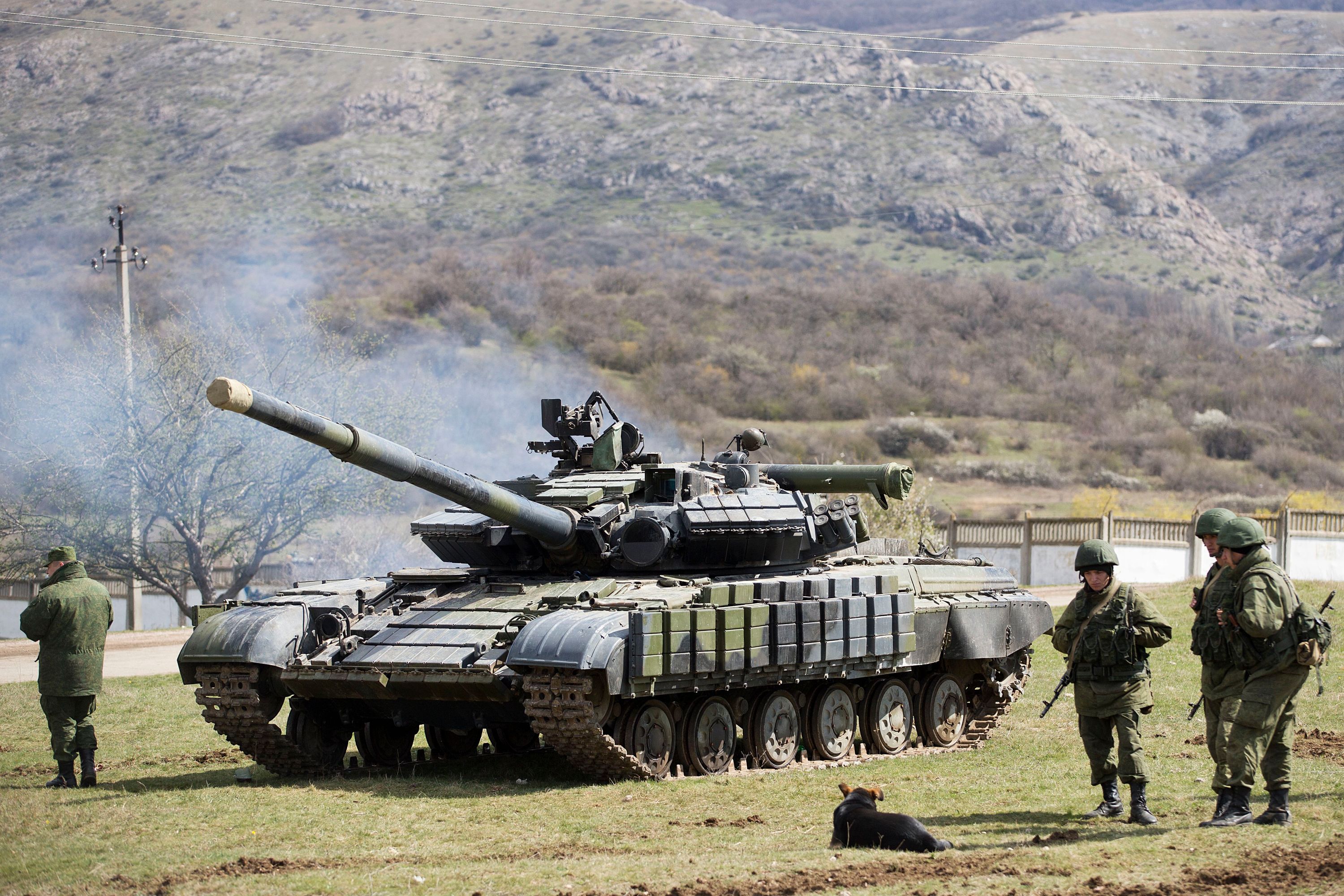
Obama also refused to provide Ukraine with lethal military assistance to help defend itself against Russian aggression, fearing this would lead to an escalation in the fighting. Moscow saw the hesitation as setting clear limits on how far the United States would go. Meanwhile, outreach by Secretary of State John Kerry, who met regularly with Putin and foreign minister Sergey Lavrov about Iran and other issues, belied Obama’s claim that he had isolated Russia and diminished the impact of the sanctions.
President Donald Trump did approve lethal assistance to Ukraine, proving the concerns about escalation to be unfounded. The Trump administration beefed up its military presence in the region, boosted American exports of liquefied natural gas to Europe and continued to impose sanctions.
These harsher measures, however, were completely undermined by Trump’s rhetoric about Putin and his 2018 meeting with the Russian leader in Helsinki, where he notoriously said he believed Putin’s claims about election meddling over those of the U.S. intelligence community. More generally, Trump’s solicitousness toward Putin undercut the effectiveness of otherwise relatively strong actions, creating an incoherent approach.
Biden took a tougher approach during his campaign and upon assuming office, agreeing that Putin is a “killer” and imposing two rounds of sanctions in March and April for various abuses. Unfortunately, those sanctions repeated the familiar pattern of not going after the people closest to Putin. A list of 35 prospective targets carefully prepared by associates of opposition leader Alexei Navalny was largely ignored by the administration.
Since then, however, the president seems to have softened his approach. Focused on China and, more recently, on Afghanistan, the Biden administration does not want to be distracted by a showdown with Putin. Some also worry that getting tougher with Putin could drive him into a closer relationship with Xi Jinping. Others in the administration fear that continued sanctions and a hard-line approach would impede hopes of cooperation on climate change and arms control. These concerns likely led Biden in April to invite Putin to a summit.
Putin’s behavior, meanwhile, has only gotten worse. Days after the June summit in Geneva, he absurdly accused the United States of orchestrating the 2014 ouster of pro-Russian Ukrainian President Viktor Yanukovych. That was followed by a lengthy diatribe posted on the Kremlin’s website arguing that Ukraine and Russia are “one nation.” Putin has drawn a “red line” on Ukraine’s joining NATO and continues to maintain a threatening troop presence along the border. He stood with Lukashenko after the Belarusian dictator engaged in air piracy. Russian authorities added Bard College to their list of “undesirable organizations” and continue to persecute opposition activists and journalists. And “Havana syndrome” attacks continue to afflict U.S. diplomats and intelligence officials; American officials increasingly suspect a Russian role in these incidents.
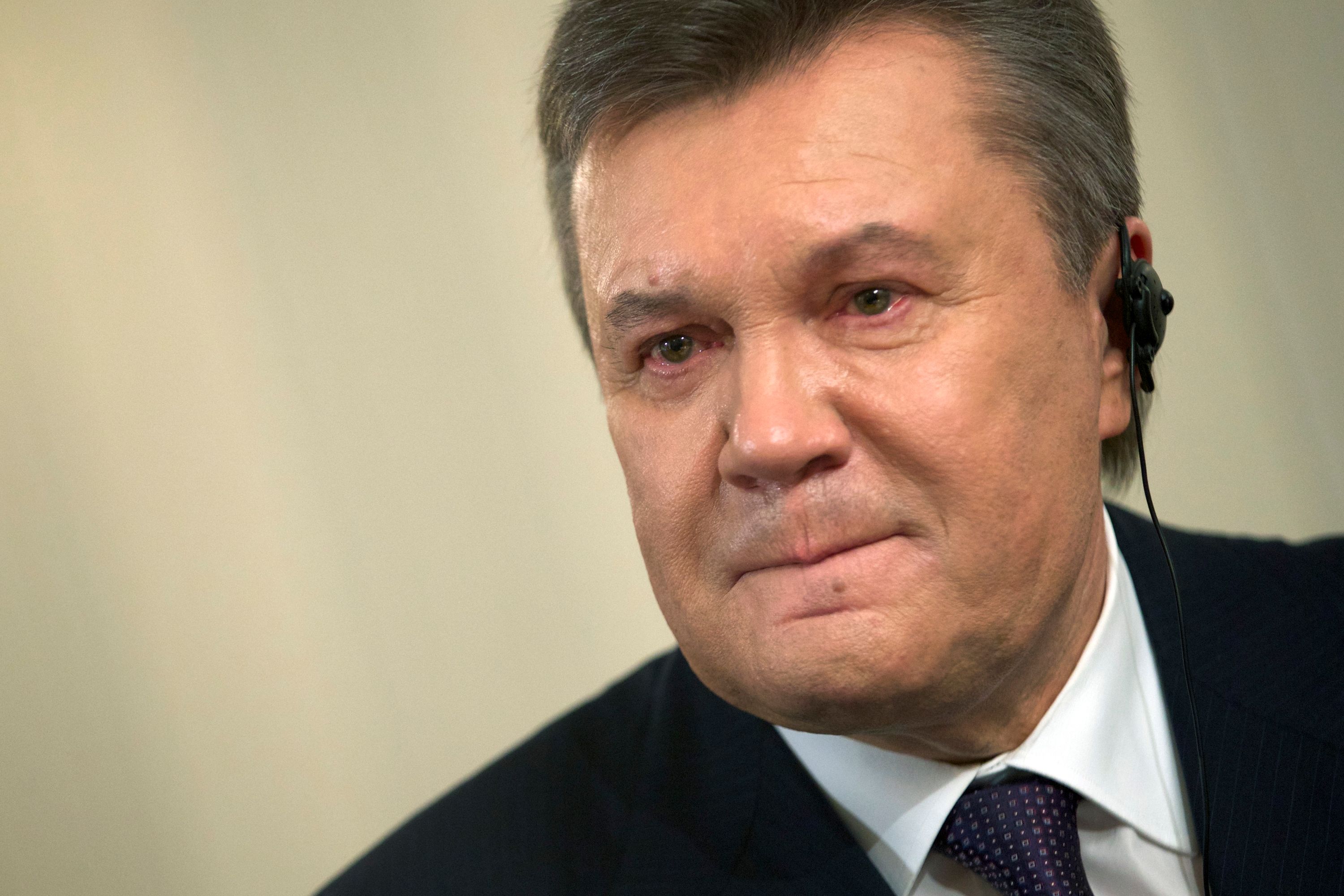
The administration might think it can ignore Russia to focus on China or worry that a tougher line toward Moscow would endanger cooperation on arms control, climate change, Iran or Afghanistan. But this argument, which resembles the ones made by the past three administrations, exaggerates the possibilities of cooperation with a regime with whom we share little in common. Moreover, Putin’s track record of reneging on agreements — the 2008 Georgia ceasefire agreement, the 2015 Minsk Agreement dealing with Ukraine, arms control treaties and human rights commitments — shows he doesn’t keep his word anyway. Even if the administration is compelled by the idea of cooperation, the United States should not look the other way when Russia engages in gross human rights abuses or invades or threatens other countries.
In light of the disastrous U.S. withdrawal from Afghanistan, the administration may want to seek Russian help there — or at least not exacerbate tensions with Moscow in the aftermath of the withdrawal. And yet Putin reportedly objected to the possibility of U.S. bases in Central Asia during his summit with Biden. Russian officials have engaged extensively with the Taliban (while also evacuating hundreds of Russians from the country).
Kerry, now Biden’s special envoy for climate change, has long represented the camp that is more hopeful about cooperation with Russia. He recently said he believed there was “space” for Russia and the U.S. “to collaborate” on climate change, and possibly “open up some better opportunities on other issues,” hinting at a softening of sanctions in exchange for cooperation on climate. Yet the historical record shows that these hopes are just that — hopes. Putin and Lavrov, Kerry’s frequent interlocutor, love to dangle the prospect of cooperation to ease sanctions with no intention of delivering on their end of the deal. Meanwhile, engagement encourages Putin to keep climbing the ladder unless and until he is knocked down.
Like previous administrations, the Biden team might be concerned that tougher responses could lead to escalation that could spin out of control. At the same time, since 2006 we have been seeing that failure to respond out of concerns about escalation can inadvertently serve as a green light for Putin to continue his destabilizing behavior.
Indeed, Biden himself recently seemed to acknowledge that the status quo risks the very escalation we seek to prevent. During a visit to the National Intelligence Council in July, Biden warned that cyberattacks could lead to a more serious crisis: “I think it’s more likely we’re going to end up — well, if we end up in a war, a real shooting war with major power. It’s gonna be as a consequence of a cyber breach of great consequence.”
To be clear, I am not arguing that we should sever all contact with Russia. Biden demonstrated in his first week in office that it is possible to agree with Putin on extension of the New START Treaty. But this is the exception to the rule.
The way a regime treats its people is often indicative of how it will behave in foreign policy. If Putin doesn’t respect the human rights of his own people, we shouldn’t be surprised that he will disregard the human rights of Georgians, Ukrainians, Belarusians or even Syrians. Nor should we be shocked when he tramples on the principles of sovereignty and territorial integrity. Instead of predictability and stability, we will see the exact opposite.
Biden should return to the sterner stance with which he began his presidency. The United States should go after Putin’s ill-gotten assets and those of his inner circle, rendering them largely inaccessible. We also need to clean up our own house and stop importing ill-gotten Russian money. Biden bragged in Geneva about America’s ability to respond to cyberattacks. Perhaps Putin needs to experience a power outage in the area outside of Moscow where he resides or at his $1.3 billion palace on the Black Sea.
We don’t want confrontation with Russia, but at some point, failure to push back on Putin’s abuses may be inviting precisely that. Neither this administration nor its three predecessors have taken on Putin’s aggression in a sustained, consistent way, specifically, by gradually ratcheting up sanctions and targeting Putin’s inner circle, and maybe even Putin himself. Instead, each president has in different ways over-prioritized hopes of cooperation with the Kremlin at the expense of Russia’s own people, its neighbors and U.S. national security interests.
The results are not pretty: The crackdown on human rights is the worst since the breakup of the USSR; Russia’s neighbors face constant threat, if not outright attack; Russian agents engage in hacks and ransomware attacks and interfere in our elections; and Putin supports like-minded leaders around the world in conflict with American interests. Meanwhile, there is little to show by way of cooperation.
Time to take the gloves off and go after the assets of Putin and his inner circle. Time to back up our warnings with actions. I wish we had done it years ago.
Go To Source
Author: POLITICO

